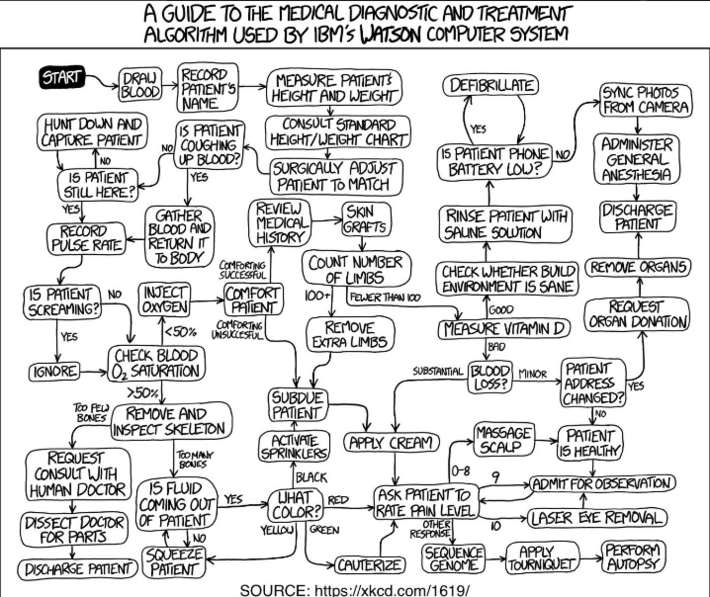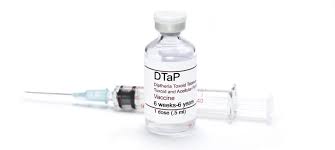“It ain’t what you don’t know that gets you in trouble; it’s what you know that just ain’t so.”
Samuel Clemens

I am going to make some generalizations here. As with all generalizations, there are exceptions, but I believe my premise holds true enough to be valid.
The trajectory of medicine seems hellbent on lowering medical care to the lowest common denominator. More and more medical “professionals” are entering the arena, claiming enough education and experience to provide treatment independent of physicians. These include nurse practitioners, physician’s assistants, pharmacists, optometrists, and will doubtless include evermore para-medical professionals. Think EMTs, massage therapists, etc. This doesn’t even include such fringe practitioners who already promote themselves as alternatives to physicians, e.g. homeopaths, acupuncturists, reflexologists, Frankhauser manipulators, and a veritable army of “alternative” medicine providers. Every legislative session in state and federal government seems to include one or more bills related directly to expanding the “scope of practice” of a non-physician group.
One example of this is the expansion of vaccinations to pharmacies. Pharmacists do not receive any training in direct patient care. They don’t learn how to treat patients or manage complications of treatment. They go through a training program that involves self-study and learning the mechanics of performing an injection. You can train anyone to give injections; children with diabetes learn to give themselves insulin shots. The problem is that once you give pharmacists license to evaluate patients and autonomously dispense vaccines, it is a pretty short hop to evaluating patients and writing prescriptions themselves. Pharmacists have worked well with physicians for generations. Seeking autonomy now, makes little sense.

A recent experience was telling. I had to get the diptheria/tetanus/pertusis (DTaP) vaccine for the impending arrival of my newest granddaughter. For expediency, and out of curiosity, I went to my local Walgreens for this. After a short wait, I was ushered into a small room with a young pharmacist who was clearly nervous. No history was taken, no inquiry as to allergies, no blood pressure or vital signs. When he performed the injection, he expressed surprise that so little material was injected and examined the syringe for, I suppose, any defects. The vaccine volume was 0.5 cc, a minute amount so this was perfectly expected but it clearly surprised him. I walked away with little in the way of increased confidence in this avenue for vaccinations.
Physicians, the most highly educated, trained, and experienced medical professionals are no longer directing medical care. We are being bypassed and disenfranchised largely by legislators, many of whom take positions based, it seems, largely on who has the most effective lobbyists or provides the greatest number of potential voters. The ship of medicine will soon no longer have a captain, only a bunch of sailors, each claiming autonomy to sail on their own. I believe this is a recipe for disaster.
The common denominator among non-physician providers seems to be a high level of confidence they can provide medical care as well, and often better than, physicians. Is this confidence merited? Perhaps, in some situations; certainly not all. Time will tell. Unfortunately, patients, which includes everyone of us, will be the guinea pigs in this massive medical experiment. It behooves us to appreciate and consider the DunningKruger Effect.
https://www.bosshardtandmarzek.com/blog/confidence-is-overrated-the-dunningkruger-effect.html
Your comments are interesting, and I agree…mostly. I’ve had three recent experiences that prove your point…and some observations generating an alternative point of view.
I had what appeared to be a bug bite with an ensuing severe reaction to my right ankle. Three separate medical people independently agreed on the probable cause. Only one was an MD. No prescriptions; no recommendations…except to keep it clean and to return to their office it it wasn’t better in a few days. As an obvious infection was continuing to develop and worsen on my ankle, I went to a local Urgent Care facility (on a Saturday). I was disappointed to find it was staffed only by a very young nurse practitioner, no MD at all in the facility! To my surprise, she prescribed an antibiotic and an antibiotic cream for a ten day regimen. Neither proved effective, and the infection worsened noticeably over the next six days. By that time I was traveling out of the US. With the infection worsening, I was finally able to see an MD, in Canada, who prescribed a different antibiotic for another 7-10 days. Three days later, noticeable improvement!
Here’s the kicker. When I sought out the first MD, I was seen only by his NP. I specifically asked to see the doctor, a dermatologist, but was told, “The doctor only does surgery. He doesn’t see patients!” You can bet I’ve deleted that phone number!
One of the major issues in far too many medical practices today is the short time allocated by physicians per patient, generally 15 minutes. (I view this as an reaction to lowered Medicare payments to the physicians. Thank you, Obamacare!). In order to maintain the same or similar income, more patients are seen per day. It’s simple arithmetic! YOU are a rare physician who spends more time per patient, and I admire you dedication to serving the needs of your patient above your own.
With physicians spending less time with patients, I think we often feel unheard, underserved and even ignored. It’s no wonder we are seeking alternatives to traditional medical people and their practices. We’re seeing them, and often only them, even when we have an appointment with the MD!
I believe that drug and vitamin advertising has also played a role in the changing medical attitudes of both physicians and patients. Listen to enough TV commercials, and we begin to feel we can self-diagnose and self-treat most anything! BIG mistake in my humble opinion!
Here’s another issue. My favorite MD told me he sometimes feels obligated to “give the patient what the patient wants/asks for so as not to get a bad comment on the ubiquitous ‘Survey’ we all get within 30 seconds of leaving our doc appointment!” Now isn’t that the tail waggin’ the dog!!!
Not a bad idea to be able to “grade” our providers, but to give a doc a bad mark because he doesn’t hand us the Med du Jour, isn’t fair either! Where does one find academically qualified, competent physicians these days? I’ve lived in the same place for 21 years. I’ve been through 5 Family Physicians, and two Gynecologists. I’m still looking for a good GP! 🤧
Ellen B Wilcox
352-259-1547 – Fax 352-409-1618- Mobile Ellen@EllenWilcox.com
Sent from my iPhone
>
Ellen, I feel your pain. Finding a good physician who will actually see you and spend time with you is getting harder and harder. I use Dr. Kurt Wagner, in Tavares. He practices Team Care, a form of family practice that uses medical assistants partnered with the physician. The physician sees all patients and the assistants take care of all the “busy” work, such as taking vitals, entering information on the computer, etc. so the physician can focus on the patient. I recommend him to everyone as a doctor in the old tradition of having face time with every patient.
Dr. Bosshardt,
Do you have any ideas for solutions for the problem of incompetent medical personnel?
Incidentally, have you ever used homeopathic remedies, such as Arnica? I have begun using them safely and often with good effect and curious as to your experience, if any.
There is now evidence that the succussion process to make these medicines changes the molecular structure of the water (one such study by Rosu-Finsen et al. https://www.science.org/doi/10.1126/science.abq2105).